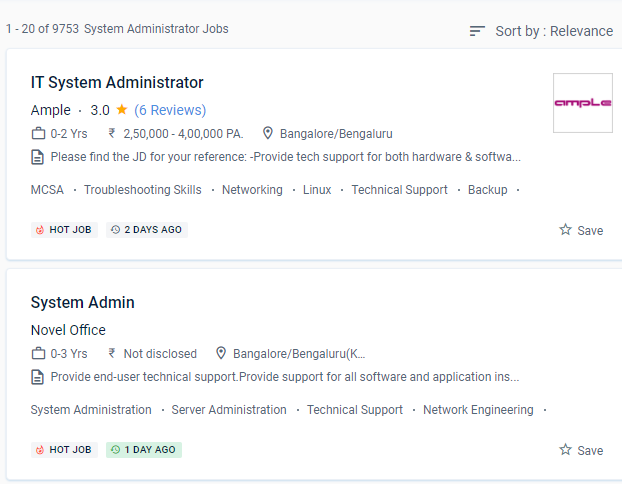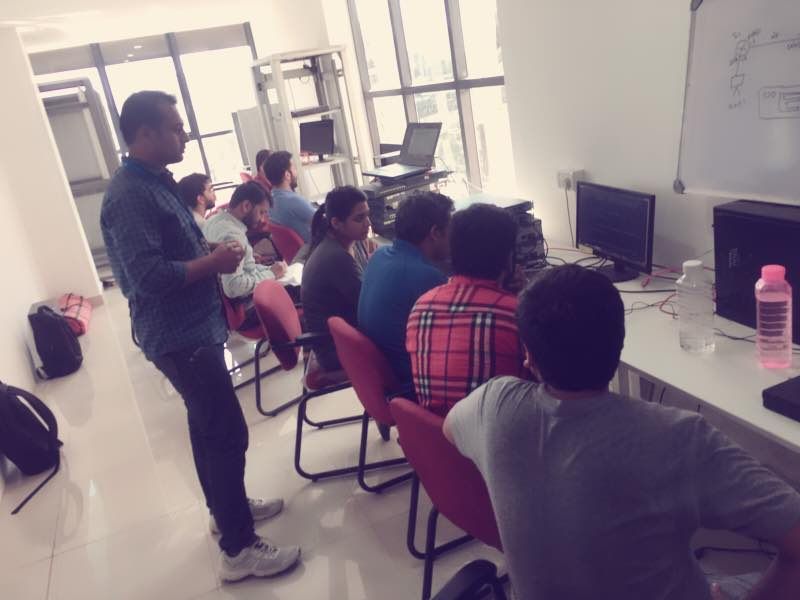System Administration Training by Experts
Our Training Process

System Administration - Syllabus, Fees & Duration
MODULE 1
- System administration introduction, policies, overview, UNIX history and basis
MODULE 2
- File systems and disks
MODULE 3
- Software installation concepts
MODULE 4
- Multi users basics, politics, policies and ethics
MODULE 5
- Automating administrative tasks
MODULE 6
- Networking
MODULE 7
- Backup and disaster recovery
MODULE 8
- DNS
MODULE 9
- SMTP, HTTP
MODULE 10
- Configuration management
MODULE 11
- Distributed computing
MODULE 12
- SNMP, monitoring
MODULE 13
- System security
This syllabus is not final and can be customized as per needs/updates





 System administration roles are broad and often vary based on the type of computer system being managed, however, the majority of them have some fundamental functions that can be accomplished in a variety of ways. It is their responsibility to ensure that computer systems and related services work smoothly.
They set up the network card (NIC) so that data can be sent and received appropriately.
They are IT-savvy and can troubleshoot any technical issues that are causing the system to malfunction. These experts may go on to become technology and IT managers in the future.
They install computers, laptops, intranets, servers, cybersecurity software, and other technology.
The System Administration course in Mumbai will take you from working on a single machine to managing a complete fleet. We'll take a deep dive into the cloud, covering everything from common cloud infrastructure setups to cloud resource management. Finally, you'll discover how to restore your company's IT infrastructure following a disaster. You'll also learn how to manage and configure servers, as well as how to manage PCs, user information, and user productivity using industry tools.
System administration roles are broad and often vary based on the type of computer system being managed, however, the majority of them have some fundamental functions that can be accomplished in a variety of ways. It is their responsibility to ensure that computer systems and related services work smoothly.
They set up the network card (NIC) so that data can be sent and received appropriately.
They are IT-savvy and can troubleshoot any technical issues that are causing the system to malfunction. These experts may go on to become technology and IT managers in the future.
They install computers, laptops, intranets, servers, cybersecurity software, and other technology.
The System Administration course in Mumbai will take you from working on a single machine to managing a complete fleet. We'll take a deep dive into the cloud, covering everything from common cloud infrastructure setups to cloud resource management. Finally, you'll discover how to restore your company's IT infrastructure following a disaster. You'll also learn how to manage and configure servers, as well as how to manage PCs, user information, and user productivity using industry tools.



















































































